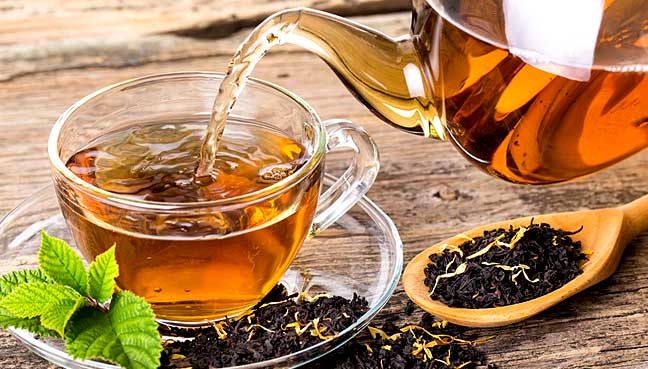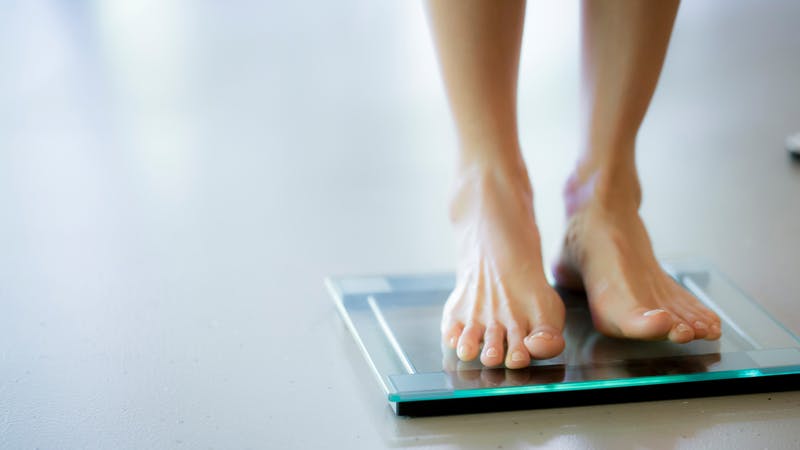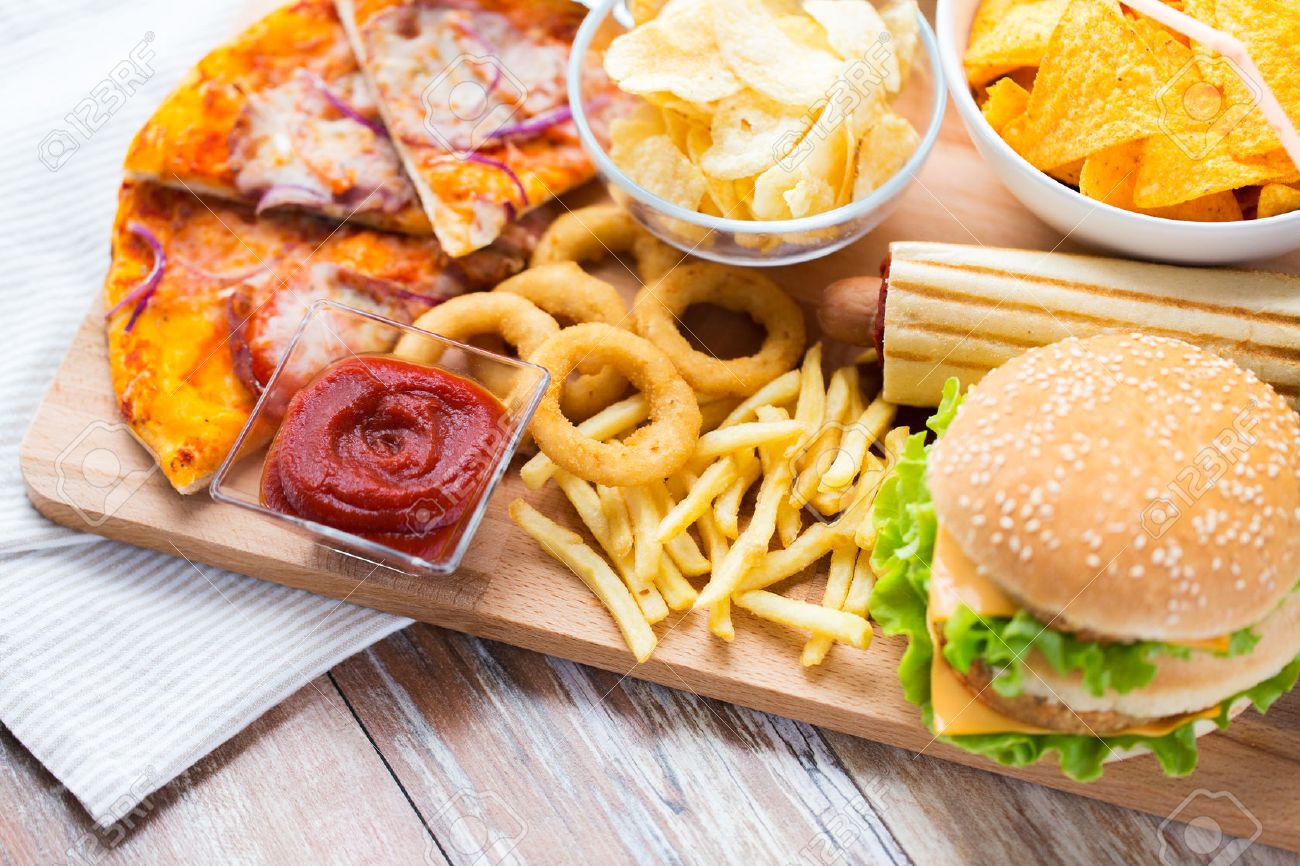The baby is here and your days and nights are packed with action, somewhere there is also a burning desire to fit into your old clothes and wear those skinny jeans again. You can do it. NO DIETING all you need is common sense and patience.Let's start at the beginning.If you pre pregnancy weight was well maintained then 11-13kg is considered a normal and healthy weight gain during pregnancy. If you are overweight or obese, this is not the time to try losing weight. The weight gain is essential for the health of the baby, for its growth and development.
Post child birth it is important that you shed all the weight as it is associated with obesity and weight gain later in life, but even more important is that you do it the healthy way and patiently. You put it on over 9 months, your body has been through a physiologically challenging time, give it a break. Crash dieting, poor nutrition, inappropriate physical activity can be very seriously damaging to your health.
During delivery you lose almost 3-4 kg with the baby's weight, placenta, and amniotic fluids. The first week sees additional weight loss because off the additional fluid losses. The fat that accumulated needs to be worked on.
1. Eat everything
Stress of adjusting to a new baby may add to your weight so don't add more stress- eat when you are hungry, choose healthy and the weight will come off. While breast feeding do not restrict your calories too much, eat whole some foods that provide you with nutrients rather than empty calories.
Choose Whole grains like wheat, Bajra, and Ragi which not only provide energy to remain healthy and recuperate,but also fibre to add bulk to the meal and keep the food longer in the sytem. It also helps with constipation , a common problem for lactating mothers. Whole grains are a good source of a number of essential Vitamins, and minerals like folate and phosphorus which nourish your baby as well.
balanced diet
Adequate Proteins help heal and add satiety to the meal. Include good quality proteins from milk, yogurt, beans, lentils, fish, egg and lean meat, nuts and seeds. Sprouted and fermented grams help increase the bioavailibity of Iron , an important nutrient for post pregnancy nutrition. Nuts and seeds also add essential fats like omega -3 to help your new born develop a healthy brain and nervous system. One ounce of these makes for a healthy and filling snack.
Oils and fats are essential for everybody. Even if you are looking at reducing your weight, do not go on a fat free diet. It just isn't healthy. Eat mostly plant based oils like from peanut, ricebran or mustard ,they are good sources of healthy polyunsaturated oils.Desi ghee and butter are also healthy. All provide the same 45 Kcal/5gms, so enjoy the variety.
Whole fruits and Vegetables add vitamins and essential minerals to your meal . While citrus fruits add VitaminC, the green leafy ones add Vitamin A crucial for you and the baby. By choosing a fruit or vegetable for a snack you choose fewer calories, more nutirents and health
You do not need to eat for two people so choose smaller portions, do not skip meals. Traditional til ladoos and gond pinnis are healthy, so is desi ghee, by limiting the intake you maintain your weight and good nourishment at the same time.
2. Drink lots of fluids
it helps with feeding your baby. Water is by far the best fluid for you. It helps fill you up and research has also found that drinking adequate water helps lose weight. Taking a glass of warm water with meals is a traditional way of improving digestion, there by controlling weight. Milk is another essential drink it helps you get adequate calcium of good quality and protects your bones while adding proteins. Calorie free drinks like sugar free aam panna (no artificial sweeteners), bael sharbat, chaas, and traditional zeera and ajwain water all help in easing the flow of breast milk, hydrate, and keep you full.
sit and drink water
Breast feed your baby. It provides the little one with immunity and other numerous benefits. It also helps you lose weight, especially the fat from your body. While breast feeding the body uses fat cells stored in your body during pregnancy to fuel the milk production. This along with the diet calories all get used up. Also while breast feeding you can add up to 600kcal to your diet, but don't use this as an excuse to eat junk.
3. Get active
Exercise is an important part of reducing the post pregnancy flab the healthy way. If you have had a normal (vaginal) delivery and have been exercising during pregnancy, you can start light exercises after 2-3 weeks when you feel up to it. If you have had a c-section or any other complications during pregnancy then consult your doctor before starting out. Start with light exercises for your back and abdomen and gradually add aerobic and strength training as you go along. If you cannot spare 30min in a go break it up to 10 min at a time. Involve your baby in your exercise routine-You can lift your baby above you while lying down for strength training, taking your baby out in a stroller is a good exercise as is carrying him around. Experts advice feeding your baby before exercising to be comfortable from engorged breasts.
Exercise is also helpful in dealing with postpartum depression and relieving stress.
4. Get Enough Sleep
Sleep deprivation, common to new mothers, makes it harder to lose weight. Tiredness increases the levels of Cortisol, which may promote weight gain. Moreover when you are tired or sleep deprived, you may just not care about or feel motivated enough to do anything else. So nap with your baby, catch up on sleep and rest, so that your energy levels remain high and you are able to take good care of yourself to. The great Indian family is a support system you must take advantage of to stay healthy.
Motherhood is the most joyous time for any lady, so enjoy it. Do not be hard on yourself, it may take you 6-9 months to get back into shape whether you breastfeed or not. Loosing half to one kg a week is a good enough target.

Did you know the history of tea goes back some 5000 years? As a matter of fact, the earliest variants of tea were very different from how we perceive the beverage today. Back then, tea was drunk as a concoction to keep one warm and fortified with vital nutrients. Somewhere down the line with the introduction of milk and a various other innovative herbs, tea became a beverage for leisure. But, the truth is that tea is indeed replete with many medicinal benefits. Black tea is a type of tea that has a very strong flavour and is one of the most popular teas across the world. It is true that black tea is a variant that is the most oxidised, but if consumed in moderation, black tea's strong antioxidants could help regulate cholesterol levels, improve heart health, boost immunity and energy levels, and also regulate weight loss. Yes, you heard us! Think weight loss and the only tea you would ever associate with it is green tea, which is not wrong. The abundant amount of catechins does help burn belly fat. Similarly, black tea has its own mechanism to steer weight loss.
Here's why you may want to include black tea in your weight diet:
1. The gut connection: According to a study published in the European Journal of Nutrition, black tea, with help of a specific mechanism through the gut microbiome, may also contribute to good health and weight loss in humans. This mechanism is different from the one adopted by green tea particles. However, the scientists said that both the teas were effective in cutting down weight in the mice model.
2. Lowers triglyceride levels: The flavonoids present in your cup full of black tea may prevent inflammation-induced obesity and lower triglyceride levels and visceral fats.
3. Low-calorie beverage: Did you know that the calorie count of your cup of black tea is almost negligible (approximately 2 calories per cup). It also has zero percent saturated fat and cholesterol. The amount of calories in tea is linked to other products added to it such as sugar, honey or milk. It is best to steep your black tea in nothing but water to derive its best weight loss benefits.
Please Note: It needs to be understood that anything in excess is not a sustainable strategy for weight loss. Caffeine content of black tea is significantly higher when compared to green tea. Excess of caffeine can leave you dehydrated. Black tea also contains natural substances called tannins, which gives black tea a characteristic strong flavour. Tannins are present in types of tea, but they are slightly in higher concentration in black tea. In moderate quantities tannins don't harm, but when consumed in excess, tannins upset our stomach or may cause nausea and vomiting.
Therefore, include black tea in your weight loss diet, but make sure you do keep everything sugary or fattening products away from your concoction. Also keep a tab on your tea intake. Make sure you do not overdo it in a bid to lose weight.
There is no denying the fact that night shift workers are fast losing on their health. Long and hectic work schedules lead to irregular appetites, rapid changes in weight and a high risk of gastro-intestinal disorders. If you also happen to come under the same category, then it's time for you to bring some changes in your lifestyle as it may lead to a host of health problems. Night owls usually suffer from weight gain issues; possible reasons for this could be too much caffeine, high-calorie snacks, irregular eating hours and lack of exercise. According to Dr. Shikha Sharma's book, '101 Weight Loss Tips', "Maintaining regular eating habits without skipping meals are very important. An excess of spices can aggravate gastric secretion, leading to hyperacidity. Try and avoid greasy and spicy food at night."
Here are three tips for night owls to lose weight:
1. Too much caffeine intake may lead to irritability, anxiety and blood pressure. Apart from this, it can also hamper the absorption of iron and calcium in the body. One should try and cut down or limit the consumption of greasy foods, sweets, soft drinks and caffeine. Replacing such foods with vegetables and fruits could prove to be beneficial as they are loaded with fibre that will help you lose weight.
2. When it comes to weight gain, stress can turn out to be a major culprit. It is imperative to manage the stress levels in order to steer clear of stress eating, wherein we end up resorting to unhealthy junk foods that are loaded with calories. One should try and incorporate exercise in their lifestyle in order to aid in weight loss. Sleep well and get good rest before you start your work.
3. Night shift workers usually have to face irregular eating patterns. However, one should not skip their meals, especially breakfast as it can disturb the whole body cycle, which further leads to weight gain. Before going to bed in the morning, eat a small regular breakfast, like cereals with milk and fruits to lose weight.
Fast Food, by and large, is detrimental to the health. Multiple studies have shown this in the past decade. It aggravates many diseases and is responsible for medical conditions such as obesity, respiratory problems, cardiovascular diseases and hypertension. Amidst multiple negative qualities, many fast foods are actually not that bad for the body. If taken in right proportions, some of the fast foods mentioned below can be extremely useful for the body.
Popcorn- Apart from being one of the best accompaniments for movies, popcorns greatly helps in curbing hunger. Home-made popcorns have fewer calories and are a very good antioxidant. The good part about popcorn is the fact that it is not heavy as other fast foods and doesn’t make you feel lethargic. However, it should be ensured that more than one bowl of popcorn is not consumed at a time.
Baked snacks- Baked snacks are a much-preferred choice in the snacks category these days. Owing to their low fat and carb content, they not only serve as tasty snacks but are good for the overall health as well. The fact that baked snacks are made up of whole wheat, makes it a more attractive offering. Baked snacks, when prepared with a dash of spice, can be a good alternative to other unhealthy snacks in the market.
Processed Cheese- Processed cheese contains Conjugated linoleic acid (CLA). The latter is found to have anti-carcinogenic properties. A recent study showed that the CLA found in processed cheese is much more than other dairy products. Processed cheese is also a good antioxidant. This being said, too much intake of processed cheese can be harmful to the body.
Dark chocolate brownie- If dark chocolate is consumed with whole wheat brownie, it acts as a good ingredient for patients suffering from cardiovascular diseases. When consumed with a few nuts, dark chocolate brownie becomes a power house of fibre. People with a sweet tooth can find this preparation a good alternative for other fast food items such as chocolate, ice cream and pastries.
Chocolate Bars- This is another treat for a person with a sweet tooth. Dark chocolate bars are rich in antioxidants. It brings down blood pressure level and is found to be effective for the heart. This should not be consumed more than 100 grams per day.
Stout Beer- Dry stout beer with its rich creamy content is as good as a dose of aspirin. This form of liquor improves blood circulation level and reduces the risk of cardiac arrests. One pint of this beer every alternate day will serve the purpose of quenching your alcohol thrust while ensuring that no harm is caused to your health.
Rice though used as a staple in many parts of the world, is still one of the most controversial and misunderstood foods. There are a number of myths associated with this food and now’s time to debunk them. But let’s look at a few facts about rice first.
Rice contains high carbohydrate content. A cup of white rice contains 35gms of carbohydrates
A cup of white rice contains 165 calories
A cup of white rice contains 3-4 gms of proteins
Rice, like all other carbohydrates, ultimately gets broken down into glucose inside the GI track. And glucose is the ultimate source of energy for the human body. There are also two different types of rice, white rice and brown rice. The difference between the two, especially for our health, is substantial.
White rice has very little fibre but brown rice has more fibre and also more vitamins and minerals. Whereas, brown rice has substantial amounts of minerals, which are not present in white rice, such as
Phosphorous
Magnesium
Selenium
Manganese
Brown rice contains 3 gms of fibre while white rice has only 0.6 gm. This is a substantial difference too.
Busting Myths
Myth - Rice Contains Gluten: The fact is that rice is gluten-free and it does not cause allergies that are associated with other grains. Gluten high foods are bad for diabetics and those trying to lose weight.
Myth - Rice is fattening: Rice is, in fact, low in fats and is also cholesterol free. Because it contains carbohydrates, rice is a good source of energy.
Myth - Rice has no protein: Protein is the second-most abundant nutrient found in rice. A cup of white rice contains 3-4 gm. of proteins, as a matter of fact. The quality of the rice protein is also very high compared to other grains.
Myth - Rice has high amounts of salt: Rice contains low amounts of sodium.
Myth - Eating rice for dinner makes one fat: High carb foods like rice should be eaten at night as they are metabolised into glucose, our energy stocks. The glucose in the blood is more readily converted into energy at night. Rice and other grains should be avoided during the day as the glucose more readily converts into fat.
Myth - Rice is difficult to digest: Actually, the reverse is true. Enzymes secreted in the human digestive tract are especially good at digesting rice. White rice undergoes a processing system where the germ layers, bran and husk are all stripped off. By doing this, white rice loses much of the nutrition too.
The rice of choice for all of us, therefore, should be brown rice, compared to white rice. This way we shall be getting the carbs for energy and proteins, fibre, vitamins and minerals to stay healthy.










